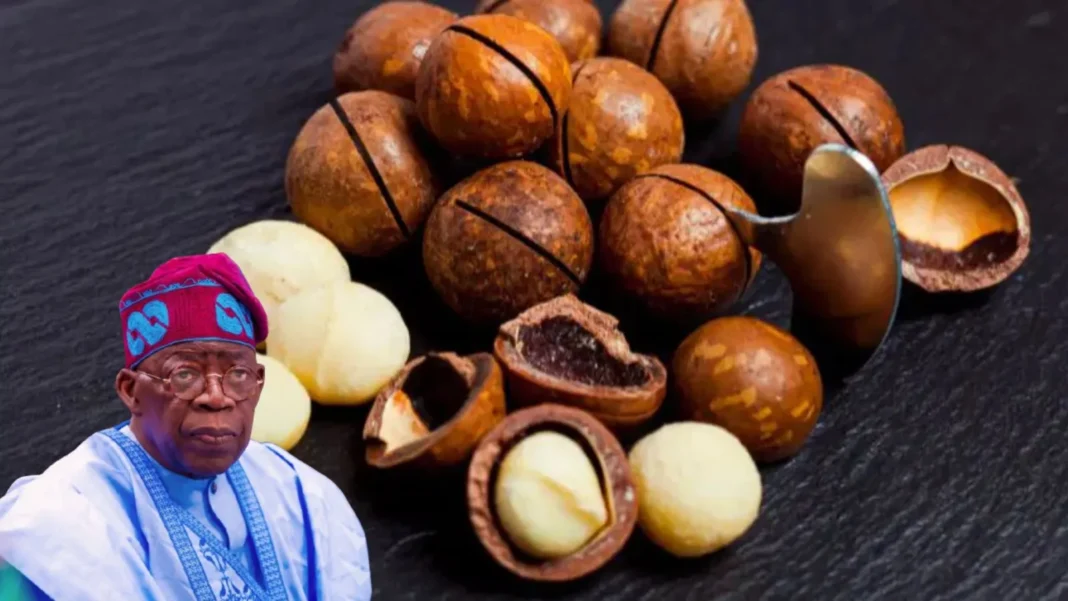President Bola Ahmed Tinubu has placed a temporary ban on the export of raw shea nuts, a move aimed at strengthening Nigeria’s agro-industrial base and ensuring greater local value addition in the lucrative global shea industry.

The Minister of Agriculture and Food Security, Abubakar Kyari, disclosed the presidential directive on Tuesday, stressing that the decision was taken to prioritise domestic processing, create jobs, and increase foreign exchange earnings through finished shea products rather than raw exports.

According to him, the federal government is determined to position Nigeria not just as the world’s leading shea nut producer but also as a hub for processing, packaging, and exporting shea butter and other derivatives.
“This measure will enable us to maximise the full benefits of our position as the largest global producer of shea. By adding value locally, we can generate more revenue, empower rural farmers, and strengthen Nigeria’s non-oil exports,” Kyari said.
The News Agency of Nigeria reports that Vice-President Kashim Shettima is presiding over a crucial implementation meeting with major stakeholders, including farmer associations, processors, exporters, and officials from relevant ministries and agencies, to map out the operational framework for the ban.
Nigeria’s Shea Industry
Nigeria contributes an estimated 45 percent of the world’s total shea nut production, making it the single largest player in the global market. Shea cultivation is concentrated in the country’s northern belt, particularly in Niger, Kwara, Kebbi, Oyo, and Kogi states, with Niger State alone producing the highest volume.

The shea sector is a major source of livelihood for thousands of smallholder farmers, most of them women, who depend on gathering and processing the nuts for income. Industry experts note that while Nigeria produces massive quantities, much of it is exported raw, leaving the country to earn only a fraction of its potential revenue.

Boost for Local Processors
The ban is expected to give a significant boost to local processors and manufacturers who have long complained of inadequate supply due to bulk exports. With more shea nuts retained in-country, processors will have access to raw materials for producing shea butter, cosmetics, pharmaceuticals, and confectionery, which command higher prices on the international market.
Economic analysts believe that beyond improving Nigeria’s trade balance, the directive could help attract investment into shea nut processing plants and allied industries.

Stakeholder Reactions
Preliminary reactions from industry players have been mixed. While processors have welcomed the move as timely, exporters who rely on international raw shea trade warn that the ban could disrupt existing supply contracts and reduce short-term earnings.
A representative of the Shea Processors Association of Nigeria hailed the directive, saying it would “finally allow Nigerian businesses to move up the value chain rather than remaining at the bottom as suppliers of raw produce.”
However, some exporters cautioned that unless government provides incentives and infrastructure to support processing, the ban might cause temporary losses for farmers and traders.
The Road Ahead
The federal government is expected to unveil accompanying measures, including support for small-scale processors, access to credit facilities, and technology transfer, to cushion the impact of the export suspension on rural farmers.
Vice-President Shettima, during Tuesday’s meeting, assured stakeholders that the policy is not punitive but strategic. He explained that government will work with state governments, cooperatives, and the private sector to ensure that farmers benefit directly from the new system.
With Nigeria’s non-oil sector increasingly seen as the cornerstone of future growth, the decision on shea nuts is viewed as part of the administration’s broader effort to diversify the economy, stimulate industrialisation, and reduce dependence on crude oil exports.







